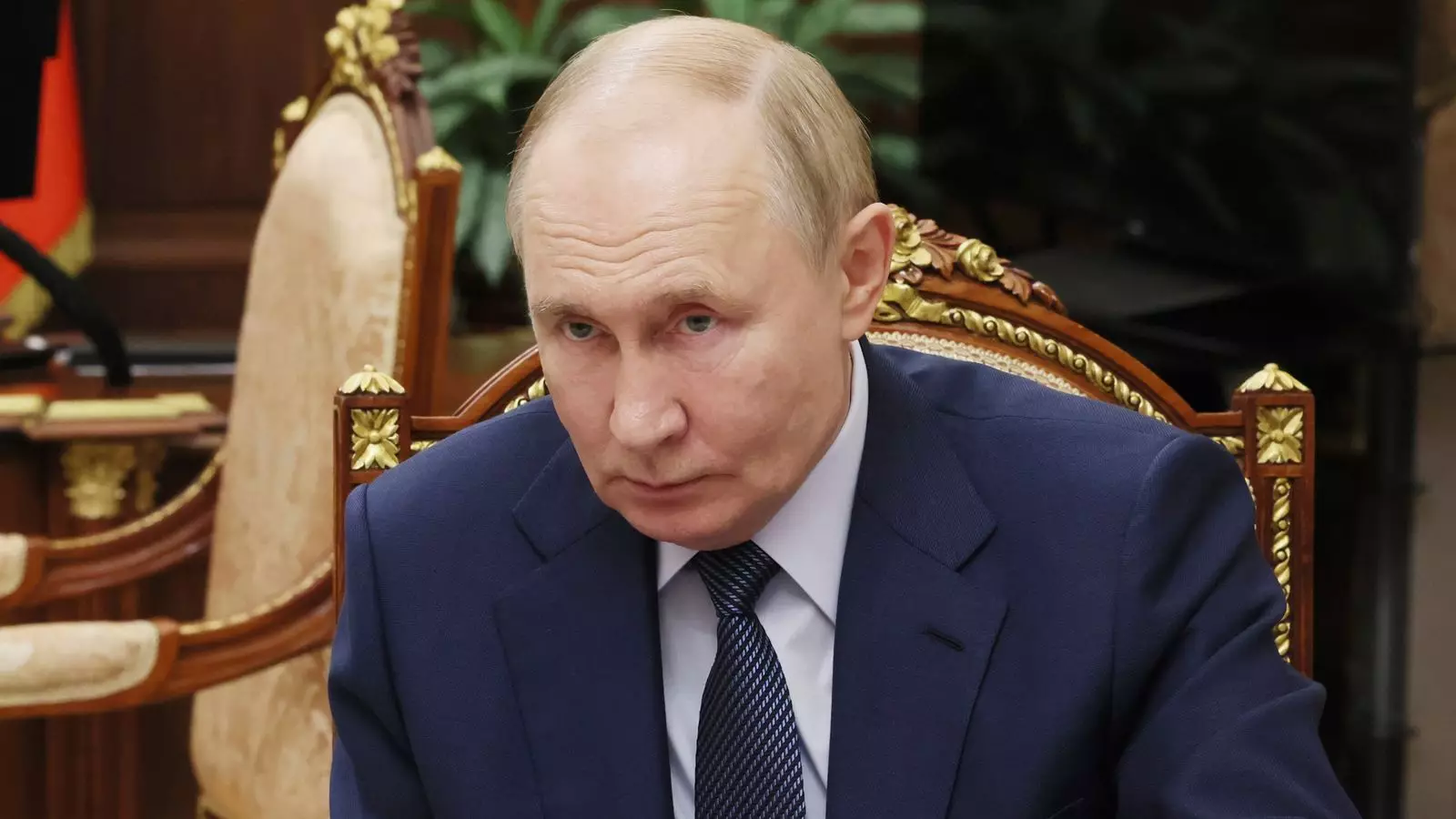In a decisive move aligned with the ongoing geopolitical struggle, the UK government has unveiled a new set of sanctions targeting Russian oligarchs connected to the Kremlin. This initiative comes as part of a broader strategy to combat the repercussions of Vladimir Putin’s invasion of Ukraine, marking three years since that fateful day in February. By tightening immigration controls and imposing travel bans on wealthy elites who contribute significantly to the Russian state’s war efforts, the UK aims to bolster its national security and demonstrate solidarity with Ukraine.
Understanding the Scope of Sanctions
The Home Office’s recent announcement emphasizes a multi-faceted approach to sanctions against individuals who not only possess substantial wealth but have also significantly benefited from their connections to the Russian government. This list includes those who provide “significant support” to the Kremlin, whether financially or politically. The move is premised on the understanding that these individuals are more than mere bystanders; they are active participants in a regime that has perpetuated violence and aggression toward Ukraine.
This historical context is essential, as it highlights the rationale behind the UK’s stringent measures. By enacting these travel restrictions, the government aims to disrupt the perceived safe havens these oligarchs may have enjoyed in Western nations, signaling that they are unwelcome in a country that prides itself on democratic values and human rights.
Legitimate Concerns Over Security and Influence
The UK government has characterized Kremlin-linked elites as potential threats to British values, arguing they publicly undermine these principles while enjoying the very freedoms the UK offers. Security Minister Dan Jarvis underscored a vital point: “Border security is national security.” This assertion encapsulates a growing recognition among Western powers that the essence of national identity could be jeopardized by external influences, particularly from hostile regimes.
As sanctions evolve, the focus sharpens on the balance between economic interests and moral obligations. The UK’s stance reflects a broader desire to challenge political narratives propagated by the Kremlin and its affiliates, aiming to curb their influence within its borders. The potential for these oligarchs to act as agents of Russian espionage or destabilization adds another layer of urgency to the measures being imposed.
Among the various efforts to combat illicit Russian financial activities, Operation Destabilise has emerged as a cornerstone of the UK’s campaign. Launched in response to the war in Ukraine, this operation has been instrumental in dismantling multi-billion-dollar money laundering rings that primarily benefited Russian oligarchs. The National Crime Agency (NCA) reported vigorous actions, including 84 arrests and the seizure of over £20 million in illicit funds. Such operations reveal the UK’s commitment to uprooting systems that have long enabled corrupt practices and criminal enterprises tied to the Kremlin.
Key figures like Ekaterina Zhdanova, identified in the money laundering efforts, have faced international repercussions. Zhdanova’s sanctioning by the US and subsequent arrest illustrate the interconnected nature of global efforts to restrict oligarchs from exploiting legal loopholes. The strategy not only targets the perpetrators but aims to dismantle the intricate networks that facilitate their corrupt practices.
While the UK refines its approach to sanctions, discussions among US officials and Russian counterparts hint at potential peace talks regarding Ukraine. However, the exclusion of Ukrainian representatives from these dialogues raises significant concerns. Ukrainian President Volodymyr Zelenskyy’s insistence on being part of any negotiations is a powerful reminder of the agency and sovereignty that must be upheld in diplomatic efforts. The UK’s commitment to supporting Ukraine’s narrative in international discussions is consistent with its stance against appeasement.
Ultimately, the success of the UK government’s sanctions will depend not only on the measures themselves but also on the global commitment to uphold integrity and justice in the face of aggression. As the conflict continues to unfold, vigilance and coalition-building will remain imperative in ensuring that the resolve against oligarchs and their influence does not waver. The current landscape demands that nations stand united, reaffirming their dedication to the principles of freedom and democracy while confronting the realities of authoritarianism.

Leave a Reply